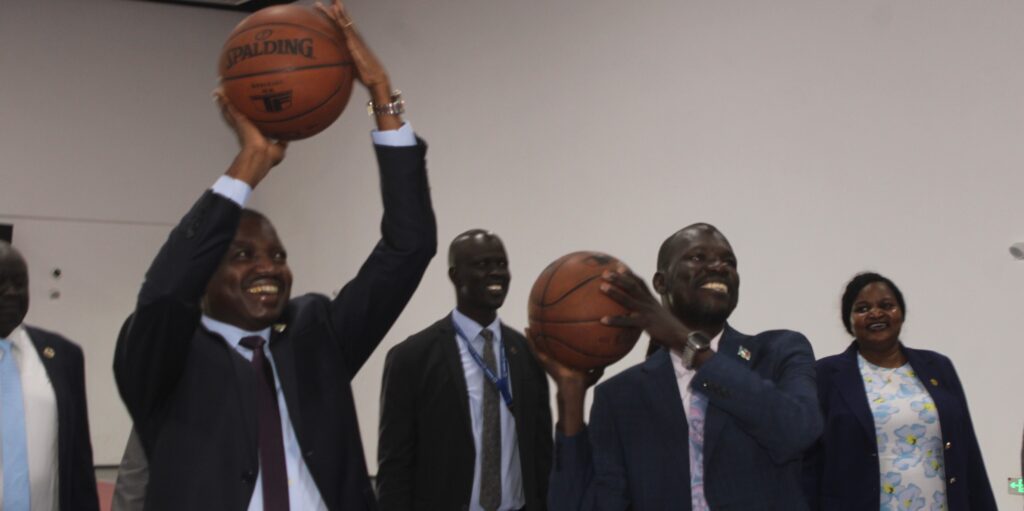Youth and Sports Minister Dr Joseph Geng Akec has disclosed plans to create additional opportunities for South Sudanese to earn a living from sports.
Dr Akec expressed the sentiments in his address to journalists during the inspection of the Bank of South Sudan sports complex in Juba on Monday.
He said his ministry was planning to monetize athletics to enable the participants earn a living from it.
“We want to commercialize sports so that if you are participating, you get an income. Sports can foster economic development and peace,” Akec said.
He said the ministry was encouraging private investments in sports to generate income for the nation.
“This is evident in the sports competitions that we have seen. The government has a policy and we would like to see the private sector joining us and playing a bigger role in the development of sports.”
Monetizing sports, Akec said, will enable the country to generate income, citing that England was earning 9 billion Pounds Sterling (US$12bn) from the Premier League football.
The Governor of the Bank of South Sudan, Dr James Alic Garang, also called for greater investment in sports.
“As was highlighted earlier and many times before, sports unite people all over the world,” he said.
“We have not invested much in sports and we must challenge ourselves that sport is here for us,” Dr Garang added. Radio Tamazuj






